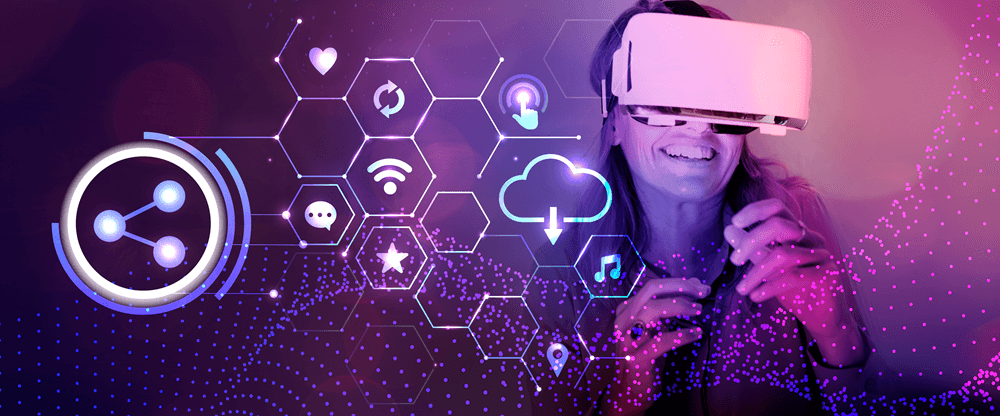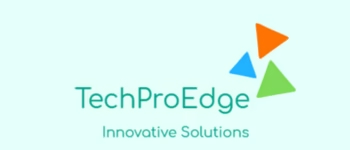What is Emerging Technology and the Latest Trends?
A Beginner's Guide in 2025 to the Future
Table of Contents
What is Emerging Technology?
Introduction:
Common question today is what is emerging technology. Emerging technology refers to innovations that are currently being developed, tested, or introduced to the market and have the potential to disrupt industries and societies in significant ways.
These technologies may be in their infancy, but they possess the power to reshape business operations, alter everyday life, and open new doors for human progress. The term is often used to describe technologies that are revolutionary, not yet mainstream, and in some cases, still evolving.
In 2025, the technology landscape is shifting faster than ever before, making it crucial to stay informed. With advancements like artificial intelligence (AI), quantum computing, blockchain, and more, we are on the verge of seeing profound changes.
Whether you are a business owner, an investor, or simply someone curious about the future, understanding what emerging technologies are—and how they might affect your world—is essential.
In this blog post, we will explore what emerging technologies are, the current trends dominating the tech world, and delve into how they are transforming critical industries like supply chain management and healthcare.
Categories of Emerging Technology:
✅ Breakthrough Innovations – Brand-new technologies, e.g., Quantum Computing & AI-powered drug discovery.
✅ Disruptive Technologies – Innovations that replace outdated methods, e.g., Electric Vehicles replacing fuel-powered cars.
✅ Enabling Technologies – Innovations that enhance existing tech, e.g., 5G improving IoT & AI applications.
These technologies drive economic growth, efficiency, and future competitiveness.
What is Emerging Technology and Why Should You Care About Emerging Technologies?
So, if we know what is emerging technology? then definetly we should we care about emerging technologies.
💡 Key Reasons:
- Career Growth: Tech-savvy professionals will dominate the job market.
- Business Competitiveness: Companies leveraging AI, automation, and digital transformation will lead industries.
- Ethical & Societal Impact: Regulation and security concerns around AI, data privacy, and biotech require awareness.
From AI-driven predictive analytics to sustainable energy solutions, emerging technologies are shaping a smarter, safer, and more efficient world.

What is Emerging Technology and Characteristics?
Emerging technologies come with unique characteristics that make them stand out. Below are the key traits that define these innovations:
Cutting-Edge Innovation
Emerging technologies often arise from new discoveries, inventions, or breakthroughs that push the boundaries of what’s currently possible. They represent cutting-edge innovation, offering solutions to problems that weren’t even thought about a few years ago. For instance, AI was once only theoretical, but today, it’s an integral part of our daily lives. Emerging technologies promise to open entirely new realms of possibility, whether through the advancement of computing power, new materials, or entirely new fields of science.
High Growth Potential
One of the most exciting features of emerging technologies is their potential for exponential growth. While these technologies may be small-scale at first, they possess the ability to transform entire industries as they develop. Take blockchain technology, for example: originally used in cryptocurrency, blockchain is now being applied across a variety of sectors, including healthcare, supply chain management, and even voting systems. As these technologies mature, their adoption rate increases, potentially changing the way we live and work.
Scalability and Adaptability
Emerging technologies are often adaptable across different industries. They can scale to various applications, making them versatile solutions for a wide range of challenges. For example, the rise of cloud computing started with tech companies but has now extended into healthcare, finance, education, and beyond. The adaptability of emerging technologies means that their impact can be felt far and wide, and they can be tailored to address specific needs in any sector.
What is Emerging Technology and Current Trends in 2025?
The year 2025 marks a key point in the evolution of several emerging technologies. These innovations are making their way into mainstream use, and in some cases, they’re set to redefine entire industries. Let’s take a closer look at the most notable trends for emerging technologies 2025:
AI and Machine Learning
AI and machine learning (ML) are rapidly evolving, and by 2025, these technologies will be more integrated into daily life than ever before. AI is already being used to automate processes, improve decision-making, and optimize operations across various industries. Machine learning algorithms can analyze large datasets to identify trends and make predictions, offering significant advantages in fields like finance, marketing, and customer service. As AI continues to develop, we can expect more advanced solutions, including deep learning models capable of understanding complex data with minimal human input.
Quantum Computing
Quantum computing is still in its early stages, but by 2025, it is expected to break through the barriers of classical computing. Unlike traditional computers, which store and process information as binary data (0s and 1s), quantum computers use quantum bits (qubits), which can exist in multiple states at once. This enables quantum computers to solve complex problems much faster than their classical counterparts. While the technology is still experimental, its potential to revolutionize fields like cryptography, drug discovery, and climate modeling makes it one of the most exciting frontiers in tech.
Blockchain Technology
Blockchain is no longer just for cryptocurrencies like Bitcoin. This decentralized ledger technology is finding new applications in various industries, including finance, supply chain management, and healthcare. Blockchain’s ability to provide secure, transparent, and tamper-proof data makes it a valuable tool for tracking transactions, verifying the authenticity of goods, and ensuring data integrity. By 2025, we can expect blockchain to become a cornerstone in the future of business transactions and digital systems.
5G and the Internet of Things (IoT)
5G networks are set to change the game when it comes to connectivity. With significantly faster speeds, lower latency, and the ability to support more devices, 5G will power the next generation of the Internet of Things (IoT). IoT refers to the network of physical devices—ranging from smart thermostats to self-driving cars—that connect to the internet and communicate with each other. The combination of 5G and IoT will enable smarter cities, more efficient manufacturing, and enhanced consumer experiences.
Extended Reality (XR): Virtual, Augmented, and Mixed Reality
XR technologies, including Virtual Reality (VR), Augmented Reality (AR), and Mixed Reality (MR), are becoming more accessible and influential. XR is reshaping how we interact with digital content, whether it’s for entertainment, education, or business applications. In 2025, XR will continue to evolve, offering immersive experiences that could revolutionize everything from online shopping to medical training. With the advent of 5G, XR will likely become even more interactive, bringing remote work, learning, and collaboration to new heights.
Autonomous Systems
Autonomous systems, such as self-driving vehicles and drones, are quickly advancing. In 2025, we will likely see these systems become more integrated into our daily lives, transforming industries like transportation, logistics, and even healthcare. Self-driving trucks are already being tested in supply chains, while drones are being used for everything from delivery services to environmental monitoring. Autonomous systems have the potential to increase safety, reduce costs, and improve efficiency across a variety of sectors.


What is Emerging Technology in Supply Chain?
Another emerging question is “What is emerging technology in supply chain”? The supply chain is one of the most dynamic areas for the application of emerging technologies. With increasing demands for speed, transparency, and cost-effectiveness, new technological solutions are being implemented to enhance supply chain management. Here are some key emerging technologies shaping the future of supply chains:

AI and Predictive Analytics
AI and predictive analytics allow businesses to forecast demand more accurately, optimize inventory, and streamline distribution processes. By analyzing data from various sources, AI models can predict patterns and trends, enabling companies to make data-driven decisions that improve efficiency and reduce costs. For instance, AI-powered tools can help businesses predict when certain products will be in demand, ensuring that stock levels are properly aligned with consumer needs.
Blockchain for Transparency
Blockchain technology is improving transparency in supply chains by providing an immutable record of transactions. Every movement of goods can be recorded on the blockchain, making it easier to track items from origin to final destination. This is particularly valuable in industries like food and pharmaceuticals, where traceability and authenticity are paramount. Blockchain enhances security, reduces fraud, and improves accountability in supply chains.
Robotics and Automation
Robots and automation systems are transforming warehousing and distribution processes. Automated robots can pick, pack, and sort products much faster and more accurately than humans, significantly speeding up fulfillment times and reducing human error. In addition, autonomous vehicles and drones are being used for last-mile delivery, helping companies provide faster and more efficient shipping.
IoT and Smart Sensors
IoT devices and sensors are enabling real-time tracking of products as they move through the supply chain. Whether it’s monitoring the temperature of sensitive goods or tracking the location of a shipment, IoT allows for better visibility and control. This technology can help reduce losses, improve forecasting accuracy, and ensure that products are delivered in optimal conditions.
Digital Twins
A digital twin is a virtual representation of a physical system, such as a supply chain process. Digital twins allow businesses to simulate and monitor supply chain operations in real-time, providing insights into how goods are moving and identifying potential bottlenecks or inefficiencies. By using digital twins, companies can improve their decision-making and enhance overall supply chain performance.
3D Printing in Manufacturing
3D printing, or additive manufacturing, is revolutionizing the way products are made and delivered. By allowing businesses to create parts and products on demand, 3D printing can reduce the need for large inventories and long lead times. It also supports localized manufacturing, which can help reduce shipping costs and minimize environmental impact.
What is Emerging Technology in Healthcare?
What is emerging technology in healthcare – The healthcare industry is another area where emerging technologies are making a profound impact. With advancements in AI, robotics, genomics, and more, healthcare is becoming more personalized, efficient, and accessible. Here’s how these technologies are transforming the industry:

AI and Machine Learning for Diagnostics
AI and machine learning are helping healthcare providers improve diagnostics and treatment plans. AI algorithms can analyze medical images, genetic data, and patient records to detect diseases and conditions with greater accuracy. This is leading to earlier diagnoses, better treatment outcomes, and a more personalized approach to healthcare.
Telemedicine and Remote Monitoring
Telemedicine has seen intense growth, especially in the wake of the COVID-19 pandemic. By 2025, virtual consultations and remote health monitoring will be commonplace. Patients can consult with doctors via video calls or use wearable devices to monitor their health, providing doctors with real-time data to make informed decisions.
Genomics and CRISPR
Genomics and gene-editing technologies like CRISPR are revolutionizing healthcare by enabling precise, targeted treatments. CRISPR, for instance, can potentially correct genetic mutations responsible for diseases, offering hope for the treatment of conditions that were previously untreatable. As genomic research advances, personalized medicine will become more widespread, tailored to each individual’s genetic makeup.
Blockchain for Healthcare Data
Blockchain technology is being explored to improve the management and security of healthcare data. By using a decentralized and immutable ledger, blockchain ensures that patient records are secure, accurate, and accessible only to authorized parties. This increases privacy, reduces the risk of data breaches, and improves the overall integrity of healthcare systems.
Robotics in Surgery
Robotic surgery allows for more precise and minimally invasive procedures. Surgeons use robotic systems to perform complex surgeries with greater accuracy, which leads to shorter recovery times and fewer complications. As robotics continues to improve, we can expect even more advancements in surgical techniques.
Nanotechnology
Nanotechnology is being used in healthcare to develop new drug delivery systems. By using tiny particles to deliver medication directly to the affected area, nanotechnology allows for more targeted treatments and reduces side effects. This technology holds promise for treating diseases such as cancer and improving overall drug efficacy.
What is Emerging Technology? Why Are Emerging Technologies Important for the Future?
As we understand what is emerging technology? then it will be eassy to underrstand important for the future. Emerging technologies are driving the future forward. Their impact is already being felt across industries, and as they continue to evolve, their potential to transform the world is limitless. Here’s why these technologies are so important:
Disrupting Traditional Models
Emerging technologies are challenging traditional business models and systems. They force industries to rethink how they operate and open the door for new opportunities. Companies that embrace these technologies early will likely see significant rewards in terms of innovation and growth.
Creating Opportunities for Innovation
The rise of emerging technologies is a breeding ground for innovation. From new business models to ground breaking products, these technologies allow for the creation of entirely new markets and services.
Solving Global Challenges
Many emerging technologies are positioned to tackle some of the world’s most pressing issues, such as climate change, global health crises, and access to education. By offering innovative solutions, these technologies hold the potential to solve complex global problems.
Boosting Efficiency and Productivity
Emerging technologies drive efficiency and productivity by automating processes, reducing human error, and optimizing resource allocation. As industries adopt these technologies, we will likely see significant increases in efficiency, leading to cost savings and improved outcomes.

Conclusion
Emerging technologies are transforming the way we live and work, and 2025 marks a critical point in this technological evolution. From AI to quantum computing to blockchain, these innovations are reshaping industries like healthcare, supply chain management, and beyond. Understanding and adapting to these technologies is essential for staying ahead in a fast-paced world. Embrace the future with an open mind, and get ready to experience the world of tomorrow—today.
I hope that here I can able to give ideas and the right information about a common question- “What is emerging technology? What is emerging technology in supply chain and what is emerging technology in healthcare?
Stay Ahead in Tech – Subscribe & Consult Today!
“If you found this blog post insightful and want to stay ahead of the curve in emerging technology, don’t miss out on our weekly updates! Subscribe to our newsletter and get the latest news, trends, and expert insights directly in your inbox. Or, if you’re ready to take the leap into implementing these technologies into your business, book a free consultation with us today!”
Web Development Insights
Content Writing Insights
Software Development Insights
Looking for a skilled professional web developer, content writer or software developer? Hire me on Upwork for web development, content writing and software development.
